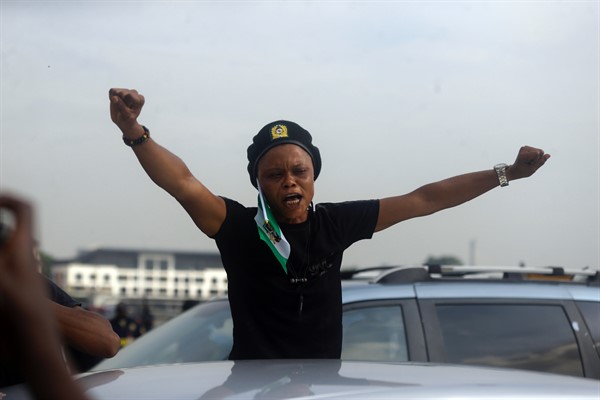Editor’s Note: This is the web version of our subscriber-only weekly newsletter, Africa Watch, which includes a look at the week’s top stories and best reads from and about the African continent. Subscribe to receive it by email every Friday. If you’re already a subscriber, adjust your newsletter settings to receive it directly to your email inbox.
In Oct. 2020, Nigerians took to the streets in cities across the country during widespread protests against police brutality, popularly known as #EndSARS. The demonstrations, regarded by many as the most significant popular uprising since the country’s pro-democracy struggles of the 1990s, initially began as a campaign against the dreaded Special Anti-Robbery Squad, or SARS, but eventually morphed into broader calls for political accountability and improved governance.
The protests continued for more than two weeks until the fateful events of Oct. 20, when Nigerian security forces opened fire on unarmed demonstrators across Lagos, killing dozens of people and injuring many others. In the aftermath of the violence, the Lagos state and federal governments did everything they could to obscure the events of that day, including denying that the shootings even took place, despite investigations done by Nigerian and foreign media organizations.

